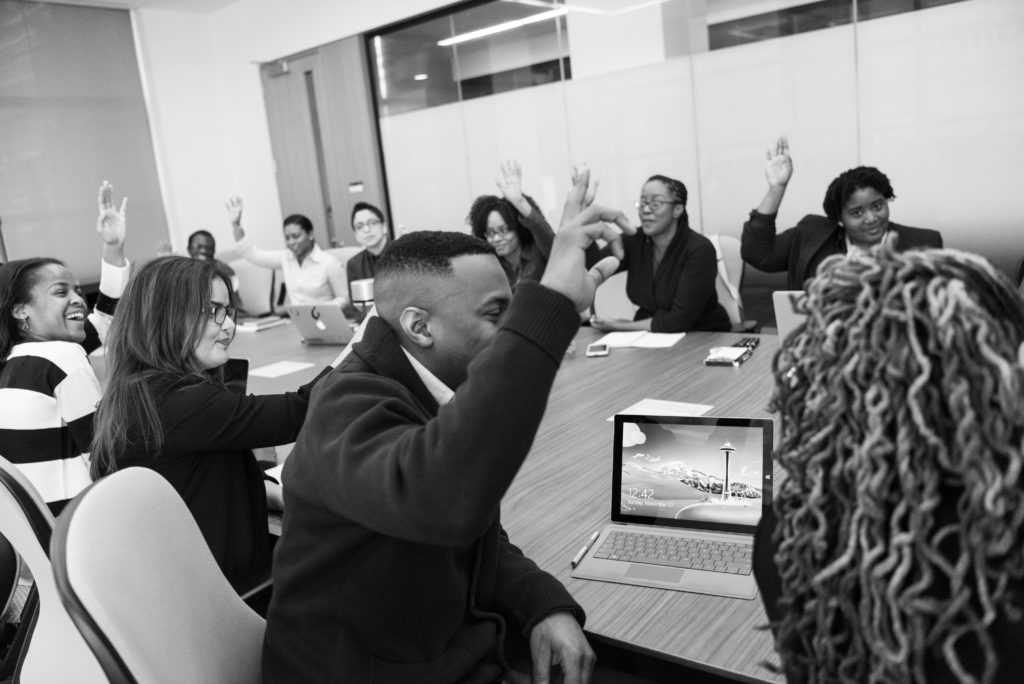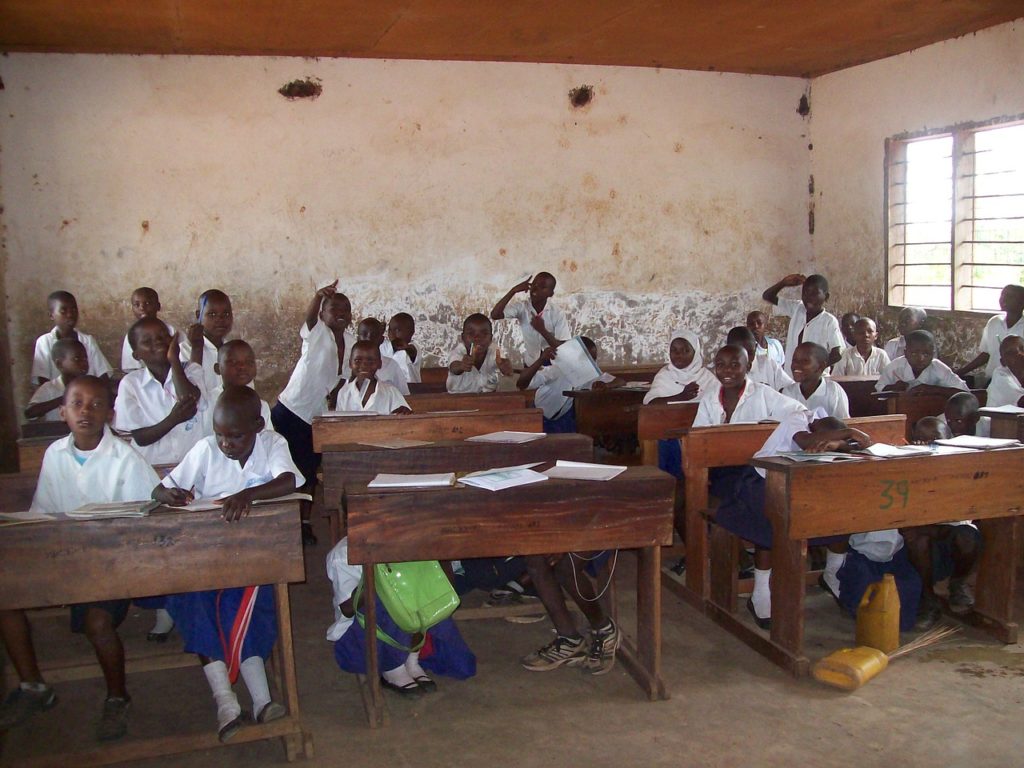Text
Key challenges areas for youth in South Africa – The causes, effects, needs and potential solutions

During various stakeholder engagement sessions, we held targeted discussions among delegates regarding key challenge areas surrounding youth development. In doing so, we highlighted five challenge areas, all of which we cover on the Voices Unite platform:
- Education and skills development
- Funding
- Work experience
- Infrastructure
- Psychosocial health
To guide stakeholder engagement on these issues, we specifically explored key connections between relevant Causes, Effects, Needs and Solutions (CENS).
All in all, all of our discussions in lead-up to the launch of the Voices Unite platform demonstrate the need for targeted, holistic, collaborative solutions to the complex problems confronting South Africa’s tertiary youth.
In what follows, it is important to bear in mind that the views expressed merely represent the outcomes of short discussions and are thus in no way exhaustive of the full complexity at play.
CHALLENGE 1: Education and skills development
CAUSES
- Too much emphasis is placed on academics and too little emphasis is placed on vocational studies
- The prevailing emphasis on increased access to education tends to overlook the quality of existing education
- Students lack guidance and are thus unable to align their studies with their career aspirations
- Funding deficit inhibits access to tertiary education
EFFECTS
- University dropout rates are very high due to lack of funding and personal guidance
- The quality of existing education is generally quite low due to overemphasis on access
- Lack of access to suitable forms of education entrenches under-qualification in the labour market
- Unemployment is exacerbated by inadequate preparation for the transition from tertiary education to the workplace
NEEDS
- Increased funding is needed to enable disadvantaged students to access tertiary education
- The amplification of vocational training should go hand in hand with the provision of adequate learning materials to students
- The youth should receive personal mentoring and career guidance early on in secondary education
SOLUTIONS
- Increased support and collaboration from government and related stakeholders is required to identify viable long-term solutions
- Social and corporate activism is required in order to ensure the implementation of adequate measures
- Increased emphasis should be placed on the importance and respectability of vocational training

CHALLENGE 2: Funding
CAUSES
- Income disparity limits the availability of funds for youth seeking to study, particularly when their families are vulnerable to poverty
- The ‘black tax’ phenomenon exerts a massive toll on black youth responsible for supporting their families while on funding
- The prevailing funding deficit is greatly exacerbated due to incompetent coordination and allocation capacities
EFFECTS
- Challenges with funding feed into high dropout rates, as students are not able to finance their studies to completion
- Apart from high drop-out rates, insufficient funding also exerts a significant toll on the psychophysiological health of students due to food insecurity and related challenges, thereby reducing performance capacity
- The psychosocial effects of poverty further reduce the capacity of students to perform and often result in depression and anxiety
NEEDS
- More efficient coordination of allocative resources is required at an institutional level
- Coordination efforts need to take stock of critical feedback from key stakeholders across sectors
- More attention needs to be paid to the financial complexities confronting youth
SOLUTIONS
- The funding issue, like most issues experienced by youth today, is highly complex and has deep historical roots. Hence, more time is required for strategic deliberations.
- The existing pool of bursaries, scholarships and related funding mechanisms must be broadened so as to allow for greater inclusion
- Students must be encouraged to take ownership of financial risk and responsibility
- Funding should be approached as a social welfare issue

CHALLENGE 3: Work experience
CAUSES
- Most students are unaware of the importance of personal and professional networks in determining employment prospects and are therefore left at a disadvantage by the time they graduate
- Insufficient job access poses a considerable impediment to the acquisition of work experience
- Graduates typically have unrealistic expectations of the job market and expect too much too soon
EFFECTS
- Graduates without access to robust networks are typically more likely to be unemployed than those with such access, thus exacerbating youth unemployment
- Lack of access to jobs reinforces youth unemployment in a vicious cycle of systemic disempowerment
- Unrealistic expectations and entitlement causes graduates to turn down low-paying opportunities, thus forfeiting valuable experience and entrenching the cycle of unemployment
NEEDS
- On the one hand, graduate expectations need to be carefully managed so as not to inspire false expectations among the youth
- On the other hand, employers need to make greater efforts to accommodate fresh graduates and job seekers within their organisations, thus facilitating critical upskilling
- There is a need for concerted training programs engendered through strategic collaboration between key stakeholders in different sectors
SOLUTIONS
- Part-time and informal work experience should be recognised as legitimate, thus allowing for wider recognition of graduate competencies
- Job seeking youth should open their minds to less conventional forms of opportunity, such as volunteering and interning
- Greater efforts should be made to provide platforms for youth upskilling, thereby providing increased avenues to employment for youth
- Youth-focused collaboration between key stakeholders across sectors is imperative

CHALLENGE 4: Infrastructure
CAUSES
- Poor service delivery inhibits the capacity of students to attend to their studies
- Entrenched historical patterns of unequal spatial organisation continue to impact students
- Demand of critical technological infrastructure exceeds supply
- Schools are insufficiently equipped to empower students with technical skills
EFFECTS
- Poor service delivery exacerbates inequality by depriving underprivileged students of the means to excel
- Spatial asymmetries also entrench inequality and reinforce the injustices of the past
- Lack of supply reinforces poor service provision and deficits in technical expertise
- Infrastructurally deficient schools limit the capacity of students to learn and excel
NEEDS
- Increased investment in service provision with focus on marginalised communities is required
- Emphasis needs to be placed on the importance of green infrastructure going forward
- Increased access to technology is needed in order to empower youth to leverage ongoing advances in technology
- More emphasis needs to be placed on the importance of technological competence in education
SOLUTIONS
- Existing infrastructure must be repaired and maintained while galvanising investment for ongoing improvements
- Urgent attention needs to be paid to spatial inequalities and corresponding mechanisms for resolution
- Government needs to pour more resources into education, with particular emphasis on technological capacitation
- The schooling system needs to prioritise technological competencies across all phases

CHALLENGE 5: Psychosocial health
CAUSES
- Successive phases of learning are plagued by inconsistent standards and expectations
- Limited life and career guidance impedes the capacity of students to make good decisions
- Students and youth are plagued by deficits of emotional and psychological support throughout their learning careers
- Families and institutions tend to lack insight into the full spectrum of psychosocial barriers affecting students
EFFECTS
- Due to lack of consistent standards and expectations, students find themselves unable to adapt to academic demands
- Due to lack of guidance and mentorship, students often make poor decisions with negative long-term consequences
- Lack of emotional and psychological support results in anxiety and depression among youth
- Lack of insight into existing psychosocial challenges prevents society from being able to adequately address youth challenges
NEEDS
- There is a need for holistically designed curricula imbued with consistent standards and expectations across all learning phases
- There is a need for increased mentorship and career guidance for youth
- There is a need for increased emotional and psychological support for youth and students
- There is a need for families, communities and institutions to attain enhanced understanding of the psychosocial challenges confronting youth
SOLUTIONS
- Key stakeholders must collaborate across sectoral boundaries to inform the construction of holistically aligned curricula
- Resources must be allocated for increased mentorship and career guidance for students at all levels of learning
- Mechanisms must be put in place to encourage families, communities and institutions to learn more about the psychosocial challenges confronting students

Sharing is caring!
Help us spread the word about Voices Unite:



I pray and I’m willing to fight until our voices are hd
Keep on fighting Willet!
After completing my grade 12 with good grades, I could finally get into one of the biggest universities in SA, university of Johannesburg.studying a course I’ve always wanted to do which is Civil Engineering. With everything on my favour,challenges came and I had to change the University within two weeks of study to Vaal University of technology of Technology..i did not want to be there, but because after grade 12,we all just wanna be in varsity.. Peer pressure and all that. I met some beautiful souls there and I’m glad I did. I had to stay the whole year studying a course I knew nothing about. I remained focused to what I wanted in life, and that alone made me survive the year. After a year in VUT, I finally went to Tshwane University of Technology where I’m currently studying civil engineering. The message I’m trying to pass is.. As young as we are we have to be able to study the consequences of your actions before you make a decision and in that way, you are able to survive a lot of challenges that not many people can survive. Don’t let minor challenges you come across distract you from getting to your dream.Expect challenges to come, that’s where a lot of learning happens.
Such an inspiring story Nhlalala, thank you for sharing it. Agreed, it is through dealing with challenges that we learn more about ourselves and the things that happen around us. It is where we learn how to persevere and overcome.